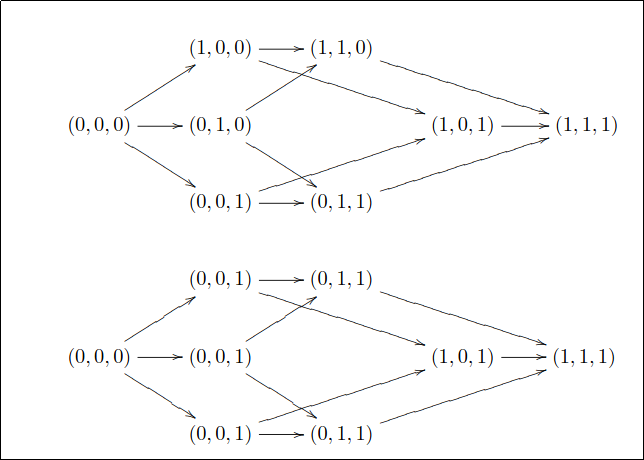Let $n\geq 1$. Let $[n]=\{0<1\}^n$ equipped with the product order. Let $f:[n]\to [n]$ be a strictly increasing map. When $f$ is bijective, there exists a permutation $\sigma$ of $\{1,\dots,n\}$ such that $f(\epsilon_1,\dots,\epsilon_n)=(\epsilon_{\sigma(1)},\dots,\epsilon_{\sigma(n)})$.
Is there such a representation theorem when $f$ is not bijective ?
For $n=2$, the only maps are $(\epsilon_1,\epsilon_2)\to (\epsilon_1,\epsilon_2)$, $(\epsilon_1,\epsilon_2)\to (\epsilon_2,\epsilon_1)$, $(\epsilon_1,\epsilon_2)\to (\min(\epsilon_1,\epsilon_2),\max(\epsilon_1,\epsilon_2))$ and $(\epsilon_1,\epsilon_2)\to (\max(\epsilon_1,\epsilon_2),\min(\epsilon_1,\epsilon_2))$. For $n\geq 3$, things become more complicated and I am not aware of any canonical representation, or at least of a way of listing all strictly increasing maps $f:[n]\to [n]$.
Motivation: When $f$ is bijective or for $n=2$, I can see $f$ as a continuous map $[0,1]^n\to [0,1]^n$ which moreover, for people interested in directed homotopy theory, takes a directed path of $[0,1]^n$ to another directed path of $[0,1]^n$ preserving the initial and final states of the $n$-cube. I would like to do the same thing for the other cases.

